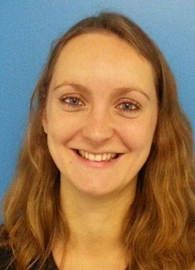Validation of the KSQ in a Dutch sarcoidosis population
Sarcoidosis is a heterogeneous multisystem disease with different clinical phenotypes. Sarcoidosis manifests most commonly in the lungs, but can affect skin, eyes, lymphatic nodes and other organs as well. Quality of life (QoL) is impaired in the majority of patients with sarcoidosis due to symptoms as dyspnea, persistent cough, peripheral pain, fatigue and cognitive dysfunction, leading to limitations in activities, social isolation and depression. Also therapies for sarcoidosis often comprise side effects impacting QoL. The last years, in pharmacological trials, patients related outcome measures have become more important and QoL is now often part of the outcome parameters.
Most studies evaluating QoL used generic questionnaires such as the World Health Organization Quality of Life-BREF (WHOQOL-BREF) or the MOS 36-item Short Form Health Survey (SF-36), both general non disease specific questionnaires. Currently, no sarcoidosis specific instruments measuring health-related QoL (HRQoL) in patients with sarcoidosis are available in Dutch. In 2012 the King’s Sarcoidosis health status questionnaire was introduced. This self-administered English HRQoL measure for sarcoidosis covers different domains of HRQoL; General Health Status (GHS), Lung (L), Medication (M), Skin (S) and Eyes (E).
Objective
The aim of this study was to validate the KSQ in a Dutch sarcoidosis population.
Study design
This is a prospective consecutive cohort study at the outpatient clinic of the pulmonary department of the Erasmus MC, Rotterdam and the ild care expertise team, Hospital Gelderse Vallei (ZGV), Ede, The Netherlands
Subjects
In July 2014 consecutive sarcoidosis outpatients of the pulmonary department of the Erasmus Medical Hospital were asked to participate. During the same period sarcoidosis outpatients of the Gelderse Vallei hospital were asked by email to participate.
Study procedure
After inclusion all patients were asked to completed four till seven questionnaires in addition to the KSQ: WHOQOL-BREF, Fatigue Assessment Scale (FAS), Small Fiber Neuropathy Screening List (SFNSL), Medical Research Council dyspnea scale (MRC dyspnea scale), Dermatology Life Quality Index (DLQI), National Eye Institute Visual Function HRQoL Questionnaire (NEI-VFQ25) and Euroqol-5D-5 level (EQ-5D-5L). Patients also completed two health-status measurement: Punum Ladders and Global Rating of Change- Quality of Life (GRC-QoL). Patients were asked to self-complete the questionnaires at home, twice, two weeks apart.
Medical and personal characteristics
Results of routinely measured pulmonary function outcomes were gathered from the medical records. The diagnosis of sarcoidosis was established when there was compatible clinical behaviour and pathological or BAL confirmation, according to international guidelines. Patients were asked about their organ involvement during a short clinical or telephonic information interview. Pulmonologist also filled in the patients’ organ involvement.
Principal investigator
M.J.G. van Manen (CV), PhD, Erasmus MC, Rotterdam, The Netherlands

Supervisors
M.S. Wijsenbeek, consultant respiratory physician, specialised in ILD, Erasmus MC, Rotterdam, NL
M. Drent, professor Interstitial Lung Diseases, FHML, University Maastricht and pulmonologist, manager ild care consultancy , NL
Project team
A.S. Patel, consultant respiratory physician, The Whittington Hospital, London (Developed KSQ), UK
S. Birring, consultant respiratory physician and honorary senior lecturer, King’s College Hospital, London (Developed KSQ), UK
M. Wapenaar, pulmonary technician Erasmus MC Rotterdam, student master of Evidence Based Practice (AMC/UvA), NL
H. Gosker, scientist, Maastricht University and web designer at GDS, NL
J. De Vries, professor quality of life in medical setting, University Tilburg, NL
M. Elfferich, ild care foundation, research manager, NL
METC number MEC-2014-213
Sponsoring
This project is supported by a grant of the ild care foundation
Publication/presentation
Abstract during the WASOGBAL meeting October 2014 meeting in Turkey (PDF)